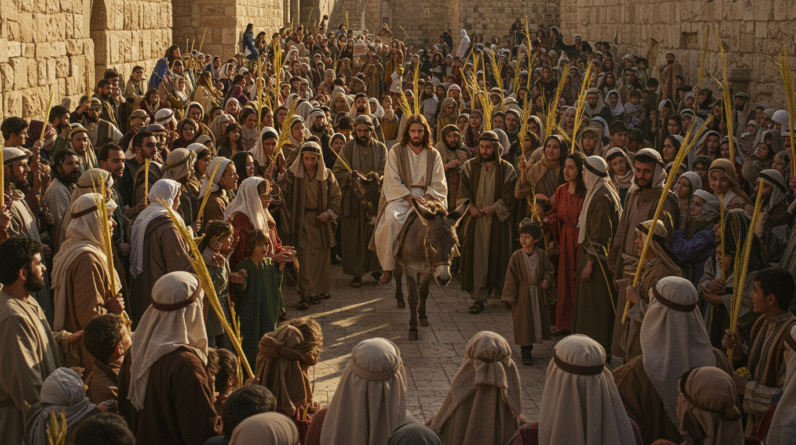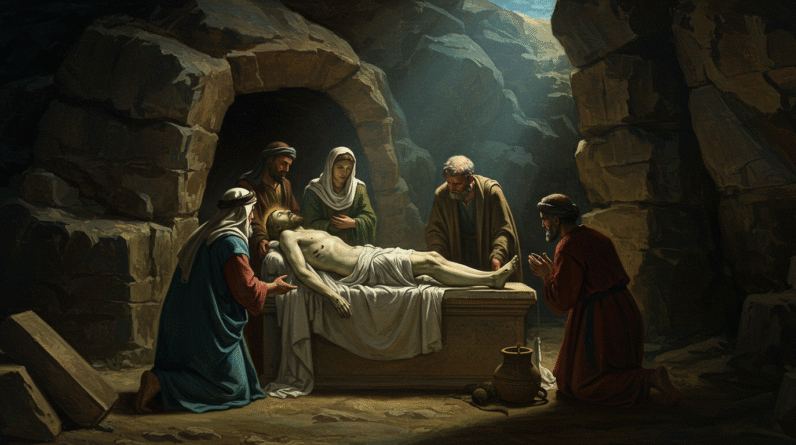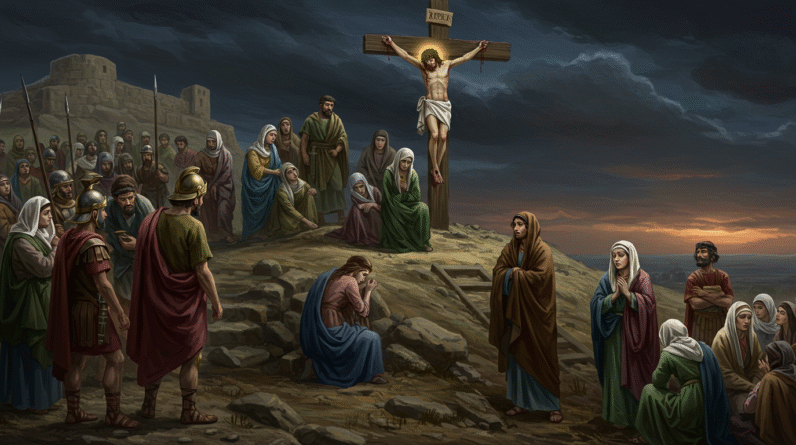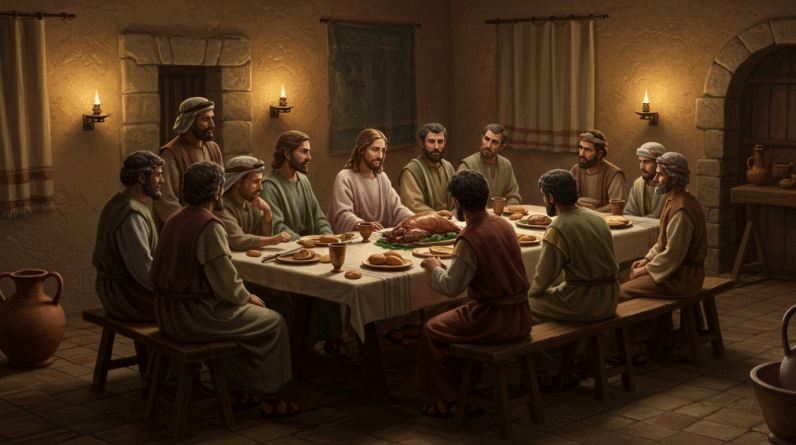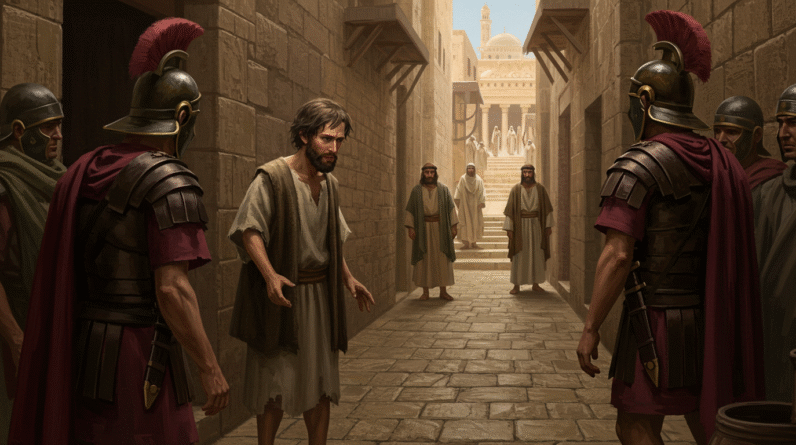Maundy Thursday Devotional: Lessons From The Last Supper
You’re entering one of the most intimate moments of the Christian story: the Last Supper. Maundy Thursday sits at the heart of Holy Week, drawing a straight line from Ash Wednesday’s call to repentance to the cross. This devotional is meant to guide your reflections during the Ash Wednesday season so you can walk into Maundy Thursday with clarity, conviction, and a heart ready to serve. As you read, you’ll encounter Scripture, reflection, and practical steps you can apply immediately to your life. Let the passages point you to Jesus, and let the practices shape the way you live out your faith.
Setting the Scene: The Last Supper in Context
When you picture the Last Supper, think of a small room, a circle of friends, and the weight of history pressing down. Jesus and his disciples gathered to observe the Passover, yet everything about that evening pointed beyond ritual to the person and purpose of Jesus. The meal was ordinary in setting but extraordinary in meaning. Read the narrative and let the tension of impending betrayal, the tenderness of service, and the clarity of Jesus’ words settle into your mind and heart. See the moment not simply as a historical event but as a pattern for your spiritual life. For the account, read Luke 22:14-20 and let the words speak to you about covenant, sacrifice, and remembrance.
What Happened at the Table
At the table, Jesus tookthe bread, blessed it, broke it, and gave it to his disciples, saying, “This is my body given for you; do this in remembrance of me.” He did the same with the cup, pointing to the new covenant in his blood. Those gestures condensed the gospel: surrender, substitution, and covenant. But the evening included more than the supper itself. Jesus also washed the disciples’ feet, pointed to the reality of betrayal, and gave a new commandment — to love one another as he loved them. Let your imagination rest on the scene, allowing the tenderness and the tragedy to form in your heart. For a full picture of service and humility at that meal, read John 13:1-17.
Lesson 1: Servant Leadership
One of the most radical lessons from the Last Supper is how Jesus modeled leadership. You might expect the host or the leader to be honored and served; instead, Jesus took a towel and washed feet. That action flips cultural expectations and invites you to a different way of leading. Servant leadership is practical and countercultural: it shows up in small, humble acts as much as in big public gestures. When Jesus washed the disciples’ feet, he taught that influence in God’s kingdom flows from humble service, not from status, power, or control. If you want to lead like Jesus, begin with the smallest acts of care and let them shape how you relate to others. The passage that captures the heart of this teaching is John 13:3-5.
How You Can Practice Servant Leadership
You don’t have to be a pastor or a public figure to practice servant leadership. Look in your home, your workplace, and your community for places where you can pick up a towel—a task no one else wants to do—and do it with joy. Serve without expecting credit. Teach by example. Let your leadership be measured by how much you give away, not by how much you accumulate. In small daily moments—listening, making coffee, carrying groceries—you practice the posture Jesus modeled. Over time, these small acts will reshape your character and the culture around you.
Lesson 2: The Call to Humility and Repentance
The Last Supper is a mirror for your soul. As you sit with Jesus at the table, you’re invited to face your own shortcomings and to respond with humble repentance. That’s why Maundy Thursday connects so naturally to the Ash Wednesday season, which calls you to confess, to fast, and to redirect your life toward God. This journey is not about guilt that paralyzes but about grace that transforms. When you acknowledge your sin, you open the door for the cleansing and renewal only Jesus can bring. Consider how your heart needs softening, how pride needs to give way, and how confession becomes the first step toward restoration. If you want a biblical posture for repentance, meditate on passages like Matthew 26:20-25, which show the reality of sin even among Jesus’ closest followers, and Psalm 51:10, which is a prayer for a clean heart.
(Include one instance of the phrase “Ash Wednesday Devotional” here to emphasize the connection.) Ash Wednesday Devotional practices help prepare you for the humility Jesus demands and the grace he offers.
Lesson 3: The Gift of the Eucharist / Communion
Communion is not merely a ritual; it’s a living reminder. When you take the bread and the cup, you recall Jesus’ body broken and his blood shed for your forgiveness. Communion anchors you in the gospel and in the community of believers—reminding you that your faith is both personal and communal. The Apostle Paul gives practical instructions and theological insight into this practice, emphasizing remembrance and proclamation until Christ returns. As you participate in the Lord’s Supper, let it recalibrate your identity around Christ’s sacrifice, not your performance. Reflect on the words in 1 Corinthians 11:23-26 and allow them to form a posture of gratitude and dependence.
How Communion Connects to Ash Wednesday
There’s a spiritual arc from Ash Wednesday to Maundy Thursday: you begin the season acknowledging your mortality and need for repentance; you end that arc at the table where Christ offers himself to you. The Ash Wednesday Devotional habit you build prepares you to receive communion not as a routine but as a profound encounter with grace. When you pair confession with communion, the result is a heart less burdened by shame and more open to service and mission. Communion also reminds you that the gospel solves the very problems your ashes confessed—sin, separation, and the need for reconciliation.
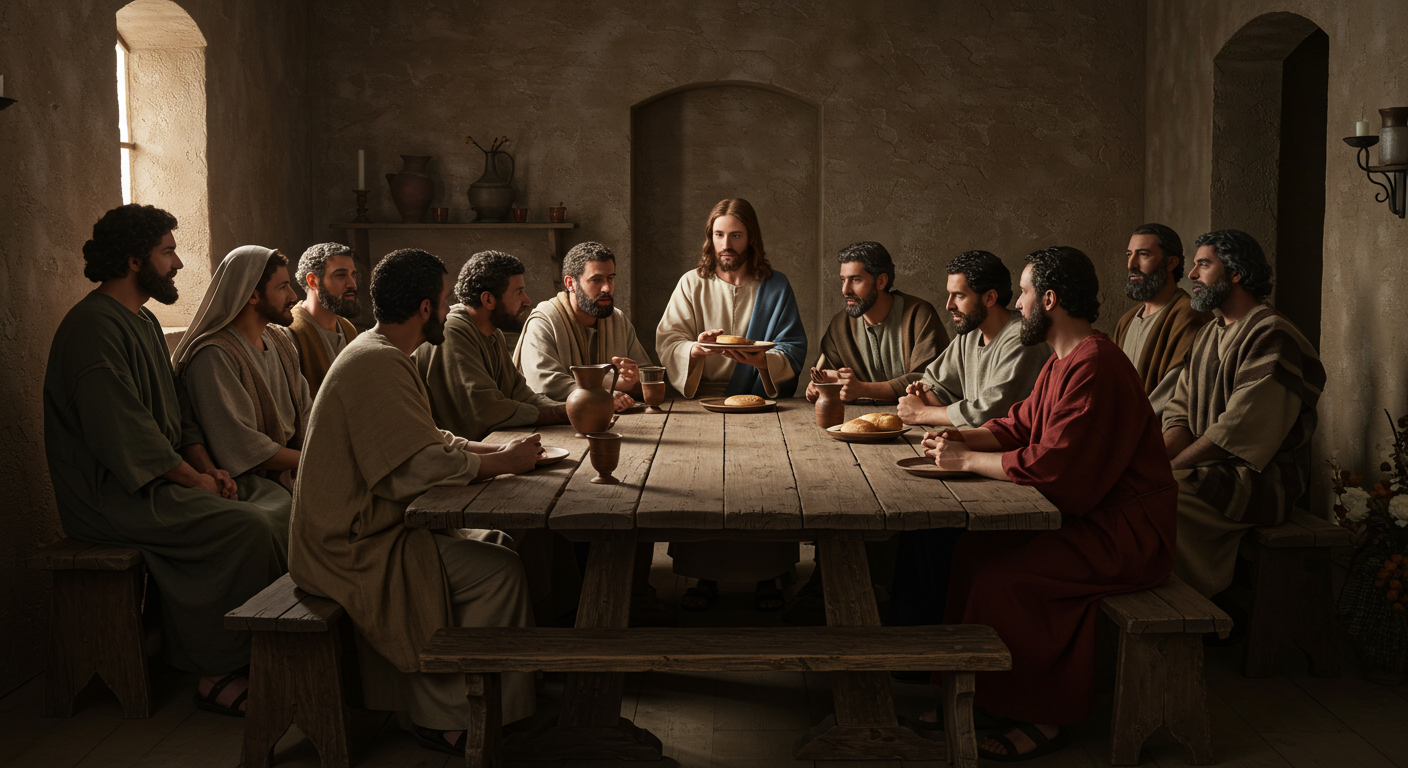
Lesson 4: Love Commanded — “A New Command”
Jesus didn’t leave the Last Supper as simply a theological milestone; he issued a practical command: love one another as I have loved you. This isn’t sentimental advice. It’s a standard of love that requires sacrificial action, consistent forgiveness, and a commitment to the well-being of others. Love that reflects Jesus isn’t primarily about feelings; it’s about the choices you make daily in how you treat people, how you speak truth, and how you extend mercy. This command is the badge of authentic discipleship—when you love like Jesus, others recognize the presence of God among you. Read John 13:34-35 and let it convict and encourage you.
Practical Steps to Love Like Jesus
If you want to practice this commanded love, begin with intentional habits: pray for someone who irritates you, choose to forgive a real offense, invest time in someone who can’t repay you, and serve without announcing it. Love grows through repetition and sacrifice. Make a list of three people you’ll serve this week, and do it with no expectation of recognition. Over time, these concrete acts of love become a new reflex for your heart.
Lesson 5: Facing Betrayal and Staying Faithful
The Last Supper also exposes the reality of human failure. Judas plotted betrayal; Peter promised loyalty and then failed under pressure. This dual reality should shape your expectations: the path of discipleship includes grace for failure but also a call to persistent faithfulness. You’ll face disillusionment and wrongdoing by others, and you’ll sometimes falter yourself. The way forward is not denial of failure but repentance, restoration, and renewed commitment. For the bitter reality of betrayal and the pain of human weakness, read Matthew 26:14-16 and Matthew 26:69-75. Let these stories remind you that Jesus meets you in your failure and calls you back to faithfulness.
Maundy Thursday as Part of the Lent and Ash Wednesday Journey
Maundy Thursday doesn’t stand alone; it’s part of a season designed to redirect your heart toward God. Ash Wednesday begins that journey with ashes and repentance; Maundy Thursday deepens it with service, love, and remembrance. If you’re observing an Ash Wednesday Devotional pattern, you’ll find Maundy Thursday is a culminating moment where the habits you’ve formed are put into practice—confession followed by communion, fasting followed by acts of mercy. Lent is not about legalism; it’s about focused preparation that makes Holy Week’s events hit deeper in your soul. Scripture invites you to return to God with all your heart (see Joel 2:12-13), and the Lenten disciplines create space for that return. Also consider Jesus’ teaching on fasting and the proper heart behind it in Matthew 6:16-18, so your practices are not about performance but about posture.
Personal Reflection Questions
You’re not meant to simply read this material; you’re meant to let it change you. Pause and answer these questions honestly. They’re designed to move your reflection from head knowledge to heart transformation. Spend time journaling your answers or discussing them with a trusted friend.
- Where do you need to practice humble service this week?
- What sin or habit do you need to bring before God in honest confession?
- Who are you called to forgive and how will you begin?
- How will you make space for communion and worship on Maundy Thursday?
These questions are simple but powerful. As you wrestle with them, ask God to give you clarity and courage to act. The Ash Wednesday Devotional habit can help you return to these questions regularly, turning brief reflection into lasting change.
A Simple Maundy Thursday Devotional Guide for You
Here’s a practical guide you can use to structure your Maundy Thursday observance. The guide is flexible—you can adapt it to your family context, church tradition, or personal rhythm. The point is to enter the story and let it transform you.
Evening Prayer and Scripture
Begin with a quiet reading of the Last Supper narratives: read Luke 22:14-20, John 13:1-17, and 1 Corinthians 11:23-26. Let the words paint the scene and speak to your current life. After reading, spend time in prayer—thanking God for Christ’s sacrifice, confessing what the Scriptures reveal in you, and asking for the courage to live out the lessons you’ve read.
Washing Feet Exercise
If you can, practice a symbolic foot-washing at home or in a small group. This is not about ritualism but about embodying the humility Jesus displayed. If you’re doing this alone, you can actually wash someone’s feet—your child, spouse, roommate—or you can wash your own hands and feet as a symbolic act while praying for a heart of service. As you do it, ask God to reveal where pride has taken root and to show you actionable ways to serve.
Communion at Home
If your church tradition allows, celebrate communion at home or attend a service that offers it. Use simple bread and juice, and read the words from 1 Corinthians 11:23-26 aloud. Let each element remind you of what Christ did for you personally. Make your communion intentional: focus on gratitude, confession, and commitment. The Ash Wednesday Devotional practices you’ve engaged in should make this meal more meaningful, transforming it from routine into encounter.
Silent Vigil and Prayers
After communion, consider spending time in silent vigil—reading the passion narrative or simply sitting in God’s presence. You might read Mark 14:32-42 to follow Jesus to Gethsemane and pray through the themes of submission, obedience, and dependence. Let your silence be a way of staying with Jesus through his sorrow and resolve to go to the cross. If sleep overtakes you, remember that even your failure to stay awake can be a moment for compassion and confession.
Pastoral Encouragement for the Ash Wednesday Season
You’re on a journey that many have walked before. The disciplines you adopt in the Ash Wednesday season are not ends in themselves but means to draw you closer to the heart of God. Don’t measure success by how strict your fast was or how many devotional readings you completed. Measure success by the depth of your repentance, the sincerity of your service, and the growth of your love for others. If you fall short, don’t let shame silence you—confess, receive grace, and get back up. The goal of this season is transformation: to become more reflective of Jesus in how you love, lead, and live. Use your Ash Wednesday Devotional time to set practical goals: who you’ll serve, how you’ll confess, and the rhythms you’ll keep to stay close to God.
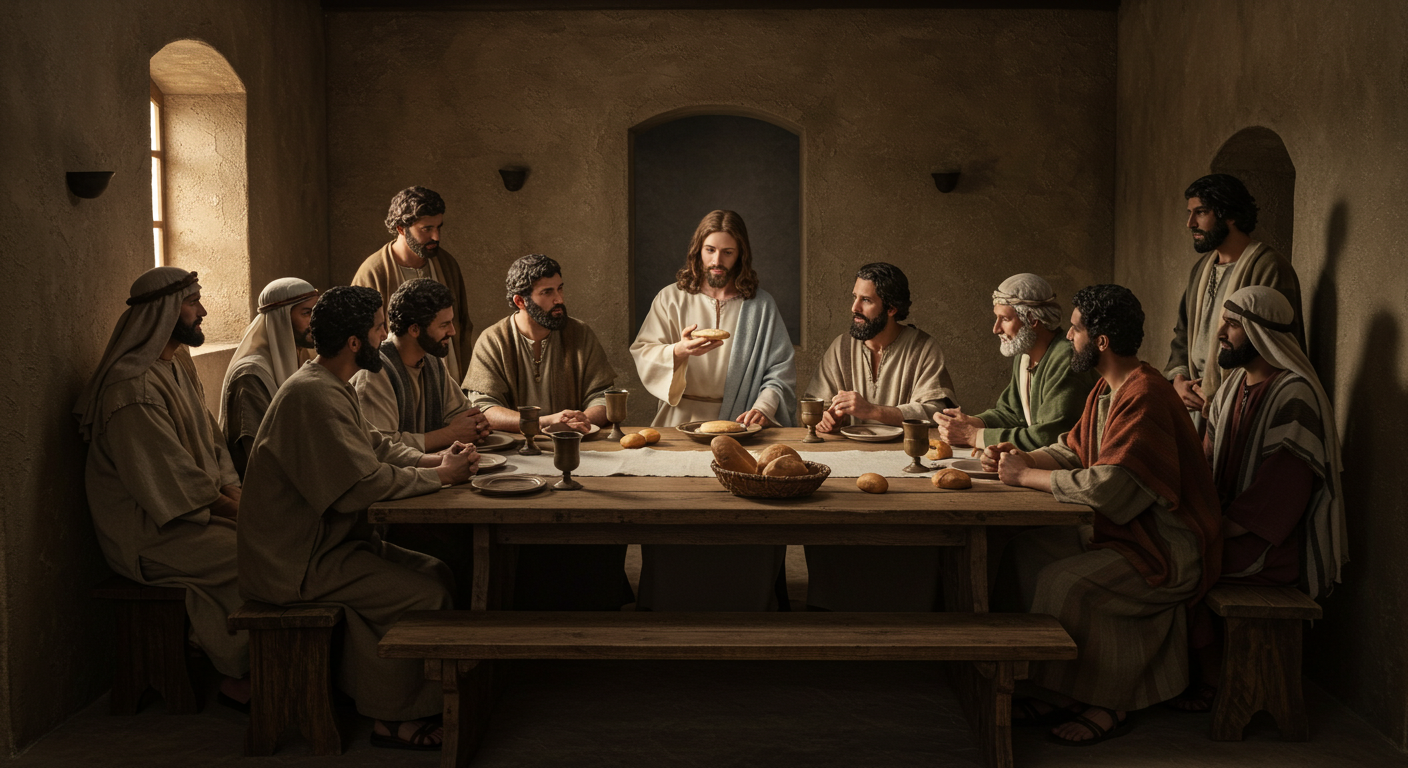
Living the Lessons After Holy Week
Maundy Thursday points you toward action, but Easter requires endurance. After Holy Week, your challenge is to let the lessons stick—to keep washing feet, to keep breaking bread in remembrance, and to keep loving in sacrificial ways. Christianity is not a one-time experience; it’s a daily dying and rising with Christ. Let the disciplines you started during the Ash Wednesday season continue to shape your habits. Make a plan for how you’ll maintain spiritual practices—prayer, Scripture reading, service, and fellowship—so that the insights of Maundy Thursday become the fabric of your life. Remember, sanctification is a marathon, not a sprint. Keep showing up, keep asking for grace, and keep being available for God to use you in ordinary acts of love.
Final Prayer and Commitment
Before you go, take a moment to pray this simple prayer aloud or in silence: “Lord Jesus, thank you for coming to serve and to save. Show me where I need to repent. Give me a servant’s heart. Help me to love like you and to live for your glory. Amen.” Let that prayer be your starting point for the days ahead. Make one specific commitment: identify one person you will serve this week, one confession you will make, and one way you will practice sacrificial love.
Thank you for spending this time in reflection. If this Maundy Thursday devotional helped you, please clap the article, leave a comment with how you plan to live out these lessons, and subscribe to my Medium newsletter for more devotionals, reflections, and practical guides to walk through the seasons of faith with intention.
As a ClickBank Affiliate, I earn from qualifying purchases.
Acknowledgment: All Bible verses referenced in this article were accessed via Bible Gateway (or Bible Hub).
“Want to explore more? Check out our latest post on Why Jesus? and discover the life-changing truth of the Gospel!”
Explore More
For further reading and encouragement, check out these posts:
👉 7 Bible Verses About Faith in Hard Times
👉 Job’s Faith: What We Can Learn From His Trials
👉 How To Trust God When Everything Falls Apart
👉 Why God Allows Suffering – A Biblical Perspective
👉 Faith Over Fear: How To Stand Strong In Uncertain Seasons
👉 How To Encourage Someone Struggling With Their Faith
👉 5 Prayers for Strength When You’re Feeling Weak

📘 Jesus and the Woman Caught in Adultery – Grace and Mercy Over Judgement
A powerful retelling of John 8:1-11. This book brings to life the depth of forgiveness, mercy, and God’s unwavering love.
👉 Check it now on Amazon
As a ClickBank Affiliate, I earn from qualifying purchases.
Acknowledgment: All Bible verses referenced in this article were accessed via Bible Gateway (or Bible Hub).
“Want to explore more? Check out our latest post on Why Jesus? and discover the life-changing truth of the Gospel!”



